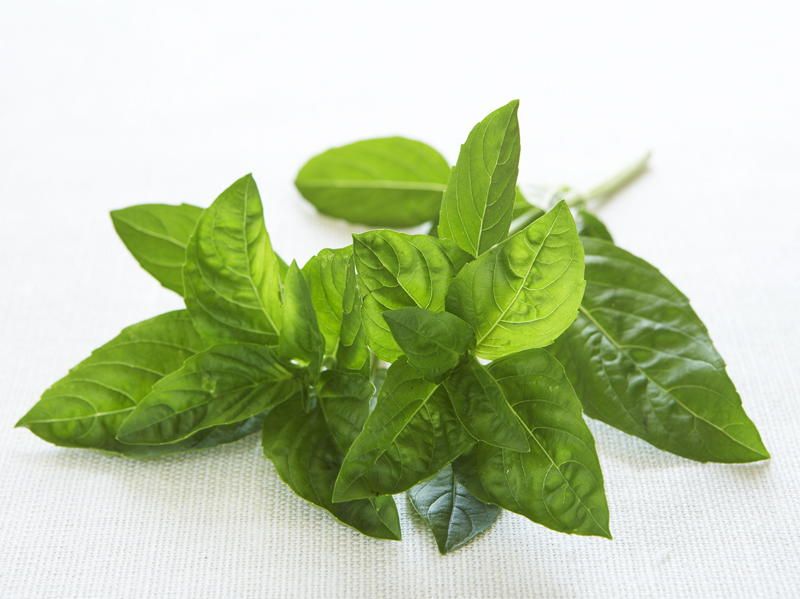Herbs and Spices - Ajowan

Basil Leaves
Basil is an herb in the mint family. It adds flavor to meals, and its nutrients may provide health benefits.
Sweet basil (Ocimum basilicum) plays a role in many Mediterranean, and particularly Italian, cuisines. It forms the basis of pesto and adds a distinctive flavor to salads, pasta, pizza, and other dishes. Indonesian, Thai, and Vietnamese cuisines also feature this herb.
In the diet, sweet basil can provide vitamins, minerals, and a range of antioxidants. Its essential oil may also have medicinal benefits. Sweet basil is available in many grocery stores, while other varieties have different tastes and fragrances.
Another type of basil is tulsi, or holy basil (Ocimum santum). This plant plays a therapeutic role in Tamil and Ayurvedic medicines, which are predominantly practiced in Southeast Asia. This is different from sweet basil.
Benefits:
1. Reducing oxidative stress: Antioxidants are essential for eliminating free radicals from the body. Antioxidants are compounds that help remove these molecules from the body. If they build up instead, oxidative stress can occur, resulting in cell damage and, possibly, disease.
2. Supporting liver health: A 2015 study in rats concluded that antioxidants in a powdered preparation that included tulsi, or holy basil, had a positive impact on liver health. The scientists applied the powder after using a toxin to induce liver injury.
3. Fighting cancer: A review published in 2013 looked at whether tulsi, or holy basil, could prevent cancer. The authors concluded that the phytochemicals in holy basil may help prevent certain types of skin, liver, oral, and lung cancers. They appeared to do this by increasing antioxidant activity, changing gene expression, triggering cell death, and slowing cell division. .
4. Protecting against skin aging: According to research published in 2011, sweet basil has properties that might help protect the skin from some effects of aging. In the study, the scientists applied a basil extract to laboratory models of skin. The results suggested that including basil extracts in topical skin creams might improve skin hydration and reduce roughness and wrinkling.
5. Reducing high blood sugar: A 2019 study in rats found that an extract of sweet basil leaves helped reduce high blood sugar levels. The results also suggested that basil leaves may help treat long-term effects of high blood sugar. If further investigations confirm these findings, basil extracts could prove useful for people with diabetes.
6. Supporting cardiovascular health: A 2011 review reported on findings that a sweet basil extract briefly reduced high blood pressure, possibly due to the extract’s eugenol content. Eugenol can block calcium channels in the body, lowering high blood pressure. However, 2 minutes after the researchers used the extract, the blood pressure returned to its high levels.
7. Boosting mental health: Mental stress can trigger the production of free radicals in the body.
8. Reducing inflammation and swelling: Oxidative stress can lead to inflammation, a factor in various diseases, including cancer, type 2 diabetes, and rheumatoid arthritis.
9. Combatting infection: Various practitioners of traditional medicine have used basil as an antimicrobial agent, and some scientific research supports this use.
Serving ways:
• Sprinkle fresh, chopped basil over a pizza or into a wrap.
• Arrange some basil leaves over slices of tomato and mozzarella, then drizzle the dish with olive oil.
• Add basil to soups, tomato sauces, and stir-fries.
• Make a marinade with basil, olive oil, and chopped garlic.
• Add whole, chopped, or torn fresh leaves to a salad.
• Chili chicken with fried basil
• Fresh basil pesto sauce
• Pasta with tomato and basil sauce